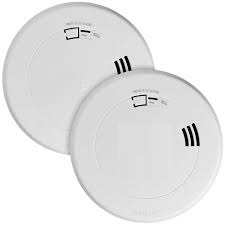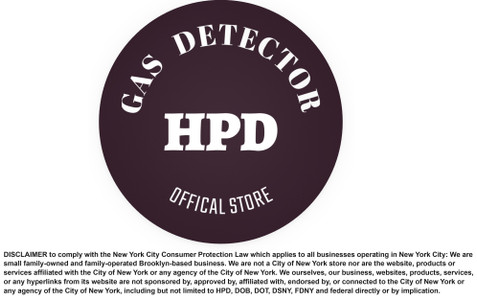Where to Install Gas Detectors in Residential Units: NYC Local Law 157 Guidelines
Provided by: PlutoDetectors.com
Under NYC Local Law 157, gas detectors must be installed in residential units to enhance safety by ensuring early detection of gas leaks. The law specifies locations based on the presence of gas-powered appliances. Below is a detailed guide to proper detector placement:
Rooms and Gas Appliances
- Kitchen
- Near gas stove
- Near gas oven
- Near gas cooktop
- Living Room
- Near gas fireplace
- Near gas space heater (if used for supplemental heat)
- Bathroom
- Near gas wall heater (used for bathroom warmth in some homes)
- Near gas tankless water heater (if located in a utility closet near the bathroom)
- Laundry Room
- Near gas dryer
- Basement
- Near gas furnace
- Near gas boiler (for radiant or baseboard heating)
- Near gas hot water tank
- Near gas tankless water heater (if installed in the basement)
- Near gas radiant floor heating system
- Garage
- Near gas water heater
- Near gas space heater (for climate control)
- Near gas backup generator (if installed for power outages)
- Dining Room
- Near gas fireplace (if installed)
Additional Guidelines
- Hallways or Common Areas: Gas detectors should also be installed in hallways outside sleeping areas for comprehensive protection.
- Manufacturer’s Recommendations: Follow the manufacturer's guidelines for placement to ensure optimal effectiveness and compliance with Local Law 157.
Proper installation of gas detectors in these locations ensures that residential units are safeguarded against the dangers of gas leaks, aligning with NYC Local Law 157’s mission to protect residents and reduce potential risks.
DISCLAIMER These codes may not be the most recent version. The State / federal or other regulation department may have more current or accurate information. We make no warranties or guarantees about the accuracy, completeness, or adequacy of the information contained on this site or the information linked to on the state site. Please check official sources.
The requirements for detector are determined by intended use and by applicable regulation. The BUYER is responsible for determining the appropriate detector needed. WE makes no warranty or representation of suitability of a detector to any code or for any specific application. IT IS THE CUSTOMER'S RESPONSIBILITY TO ENSURE THAT THE DETECTORS THE CUSTOMER ORDERS ARE IN COMPLIANCE WITH ALL STATE, FEDERAL, LOCAL, AND MUNICIPAL LAWS. Please review terms and conditions prior to purchase.
For more information about what is required, see the laws that are referenced and the rules applicable to your city and state. This page is for informational purposes only and is not intended as legal advice, professional advice or a statement of law. You may wish to consult with an attorney.



























